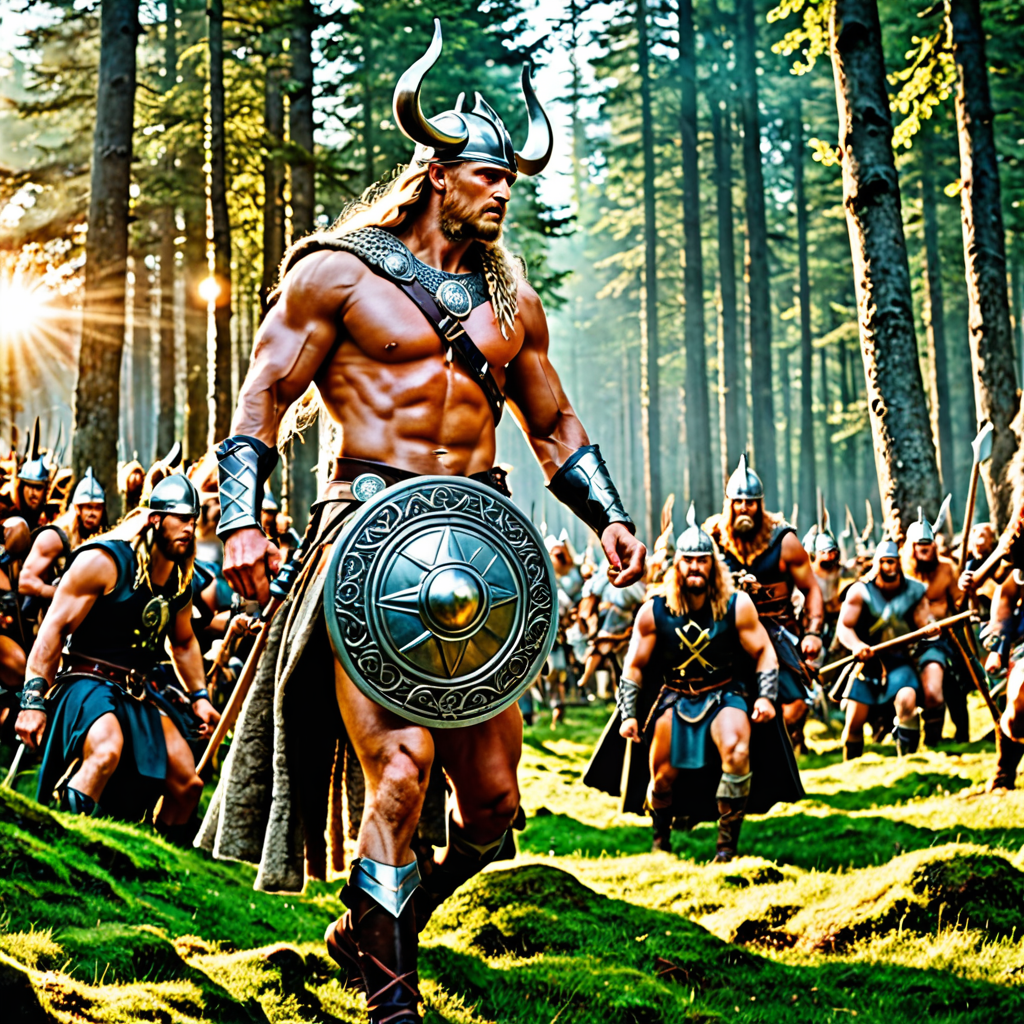The Influence of Norse Mythology on Norse Exploration and Colonization
Many aspects of Norse mythology played a significant role in shaping the exploration and colonization efforts of the Norse people during the Viking Age. Let’s delve into how these myths influenced their actions and decisions.
1. Mythical Motivations for Exploration
Norse mythology provided the Vikings with tales of adventure, conquest, and glory. Stories of gods like Odin, the All-Father, and Thor, the God of Thunder, inspired Norse explorers to seek new lands and riches. The belief in Valhalla, a grand hall where fallen warriors were promised eternal feasting and glory, instilled a fearless attitude in the Vikings, driving them to explore unknown territories.
2. Navigational Aids and Mythological Symbols
Mythological symbols and beliefs played a practical role in Norse exploration. The legendary Yggdrasil, the World Tree, symbolized the interconnectedness of the Norse cosmos. Vikings used the position of the sun, stars, and natural landmarks, mirroring the mythical use of Yggdrasil as a guide, to navigate the seas and discover new lands.
3. Colonization and Mythical Connections
The Norse belief in land spirits and deities deeply impacted their approach to colonization. They viewed the new lands they encountered as inhabited by various spirits, some of whom they sought to appease through rituals and offerings. This spiritual connection to the land helped the Vikings integrate their cultural beliefs into the regions they settled, often establishing long-lasting communities.
4. Enduring Legacy in Exploration
While the Viking Age has long passed, the influence of Norse mythology on exploration and colonization still resonates today. The sagas and myths passed down through generations continue to inspire curiosity and exploration across the globe. The adventurous spirit and dedication to new discoveries that characterized the Norse explorers can be traced back to the rich tapestry of Norse mythology.
FAQ: The Influence of Norse Mythology on Norse Exploration and Colonization
Q: What role did Norse mythology play in Norse exploration?
A: Norse mythology, rich with tales of gods, heroes, and epic quests, inspired Norse explorers by instilling a sense of adventure, bravery, and the belief in destiny. These stories often encouraged exploration and the search for new lands.
Q: How did Norse mythology influence Norse colonization efforts?
A: Norse mythology shaped the Norse perception of the world and fueled their desire to venture into unknown territories. The belief in powerful deities and mythical beings provided a cultural foundation for colonizing new lands and interacting with unfamiliar cultures.
Q: Were there specific gods or figures from Norse mythology that influenced exploration and colonization?
A: Yes, figures like Odin, the Allfather and god of war and wisdom, embodied the traits valued by Norse explorers and colonizers. Additionally, Thor, the god of thunder, symbolized strength and protection, qualities essential for navigating unknown waters and territories.
Q: Did Norse mythology play a part in the decision-making process of Norse explorers and colonizers?
A: Indeed, Norse mythology influenced the mindset of explorers and colonizers, guiding their decisions and actions. The belief in fate and the interconnectedness of the cosmos provided a framework for interpreting events and shaping strategies during exploration and colonization





